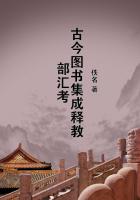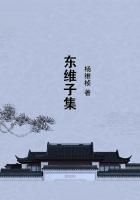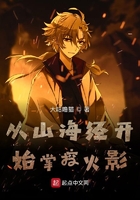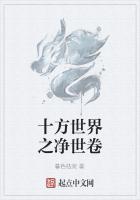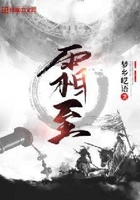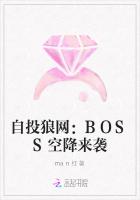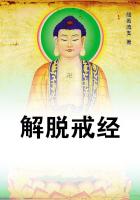"Well," Park retorted, "it'll be your own funeral if yuh get fired. Better stake yourself to a pair uh chaps; you'll need 'em on the trip.""Also a large, rainbow-hued silk handkerchief if I want to look the part," Thurston bantered.
"If yuh don't want your darned neck blistered, yuh mean," Park flung over his shoulders. "Your wages and schooling start in to-morrow at sunup."It was early in the morning when the first train arrived, hungry, thirsty, tired, bawling a general protest against fate and man's mode of travel. Thurston, with a long pole in his hand, stood on the narrow plank near the top of a chute wall and prodded vaguely at an endless, moving incline of backs.
Incidentally he took his cue from his neighbors, and shouted till his voice was a croak-though he could not see that he accomplished anything either by his prodding or his shouting.
Below him surged the sea of hide and horns which was barely suggestive of the animals as individuals. Out in the corrals the dust-cloud hung low, just as it had hovered every day for more than two weeks; just as it would hover every day for two weeks longer. Across the yards near the big, outer gate Deacon Smith's crew was already beginning to brand. The first train was barely unloaded when the second trailed in and out on the siding; and so the third came also. Then came a lull, for the consignment had been split in two and the second section was several hours behind the first.
Thurston rode out to camp, aching with the strain and ravenously hungry, after toiling with his muscles for the first time in his life; for his had been days of physical ease. He had yet to learn the art of working so that every movement counted something accomplished, as did the others; besides, he had been in constant fear of losing his hold on the fence and plunging headlong amongst the trampling hoofs below, a fate that he shuddered to contemplate. He did not, however, mention that fear, or his muscle ache, to any man; he might be green, but he was not the man to whine.
When he went back into the dust and roar, Park ordered him curtly to tend the branding fire, since both crews would brand that afternoon and get the corrals cleared for the next shipment. Thurston thanked Park mentally; tending branding-fire sounded very much like child's play.
Soon the gray dust-cloud took on a shade of blue in places where the smoke from the fires cut through; a new tang smote the nostrils: the rank odor of burning hair and searing hides; a new note crept into the clamoring roar: the low-keyed blat of pain and fright.
Thurston turned away his head from the sight and the smell, and piled on wood until Park stopped him with. "Say, Bud, we ain't celebrating any election! It ain't a bonfire we want, it's heat;just keep her going and save wood all yuh can." After an hour of fire-tending Thurston decided that there were things more wearisome than "hollering 'em down the chutes." His eyes were smarting intolerably with smoke and heat, and the smell of the branding was not nice; but through the long afternoon he stuck to the work, shrewdly guessing that the others were not having any fun either. Park and "the Deacon" worked as hard as any, branding the steers as they were squeezed, one by one, fast in the little branding chutes. The setting sun shone redly through the smoke before Thurston was free to kick the half-burnt sticks apart and pour water upon them as directed by Park.
"Think yuh earned your little old dollar and thirty three cents, Bud?" Park asked him. And Thurston smiled a tired, sooty smile that seemed all teeth.
"I hope so; at any rate, I have a deep, inner knowledge of the joys of branding cattle.""Wait 'till yuh burn Lazy Eights on wriggling, blatting calves for two or three hours at a stretch before yuh talk about the joys uh branding." Park rubbed eloquently his aching biceps.
At dusk Thurston crept into his blankets, feeling that he would like the night to be at least thirty six hours long. He was just settling into a luxurious, leather-upholstered dream chair preparatory to telling Reeve-Howard his Western experiences when Park's voice bellowed into the tent:
"Roll out, boys--we got a train pulling in!"
There was hurried dressing in the dark of the bed-tent, hasty mounting, and a hastier ride through the cool night air. There were long hours at the chutes, prodding down at a wavering line of moving shadows, while the "big dipper" hung bright in the sky and lighted lanterns bobbed back and forth along the train waving signals to one another. At intervals Park's voice cut crisply through the turmoil, giving orders to men whom he could not see.
The east was lightening to a pale yellow when the men climbed at last into their saddles and galloped out to camp for a hurried breakfast. Thurston had been comforting his aching body with the promise of rest and sleep; but three thousand cattle were milling impatiently in the stockyards, so presently he found himself fanning a sickly little blaze with his hat while he endeavored to keep the smoke from his tired eyes. Of a truth, Reeve-Howard would have stared mightily at sight of him.
Once Park, passing by, smiled down upon him grimly. "Here's where yuh get the real thing in local color," he taunted, but Thurston was too busy to answer. The stress of living had dimmed his eye for the picturesque.
That night, one Philip Thurston slept as sleeps the dead. But he awoke with the others and thanked the Lord there were no more cattle to unload and brand.
When he went out on day-herd that afternoon he fancied that he was getting into the midst of things and taking his place with the veterans. He would have been filled with resentment had he suspected the truth: that Park carefully eased those first days of his novitiate. That was why none of the night-guarding fell to him until they had left Billings many miles behind them.

